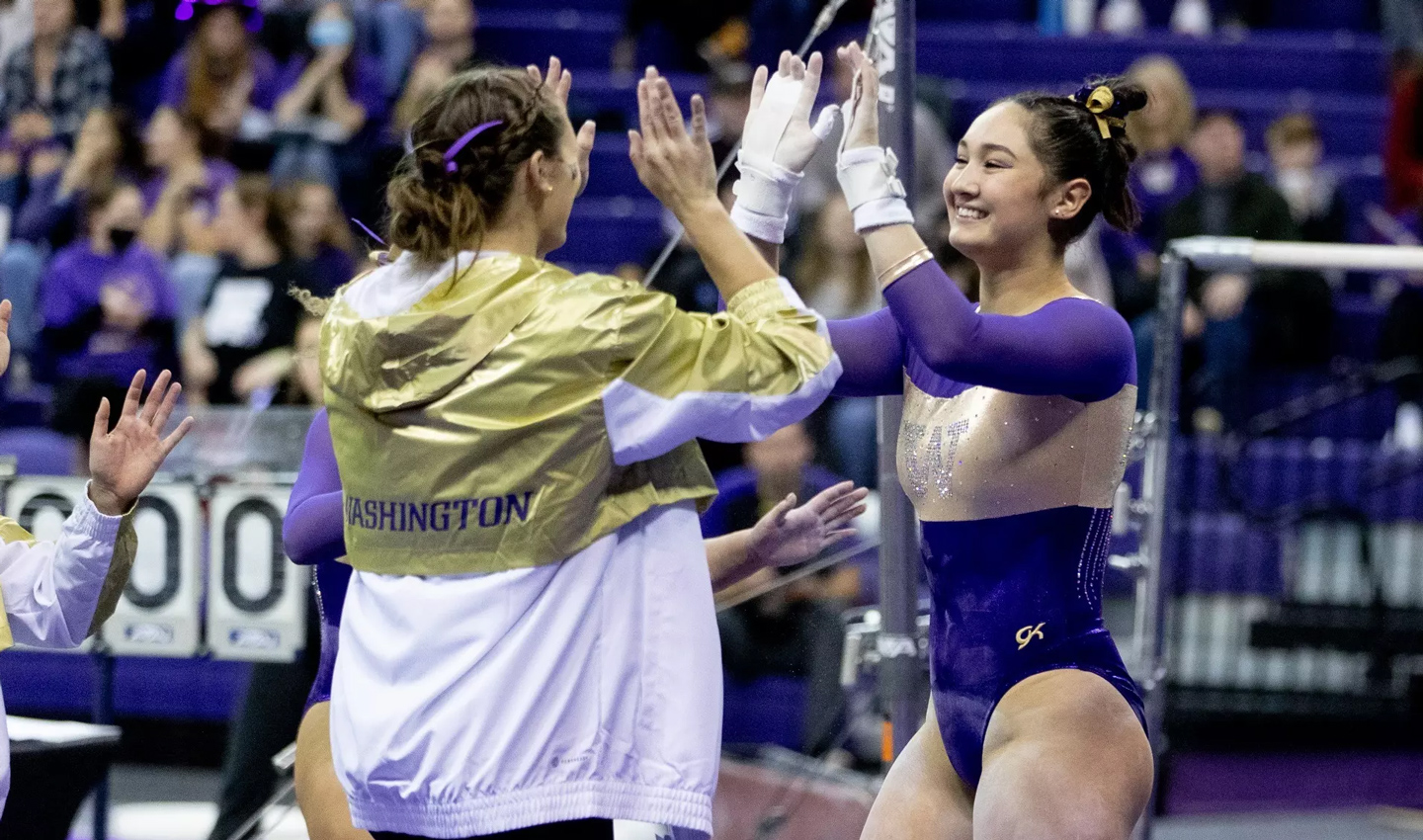When you cross the bridge from the main campus of the University of Washington to the athletic complex east of Montlake Boulevard, you can enter a different world. Past the lush leaves that flank the Burke-Gilman Trail, the arched stone walkway known affectionately as the Hec Ed Bridge takes student-athletes from the academic portion of their day to the part focused on achieving in their sport.
iSchool student-athletes and alumni describe their experience as a gauntlet of academic work and athletic competitions. They will all tell you that combining iSchool studies with high-performance sports requires balance, focus and excellent calendar management — and that the endeavor is worthwhile.
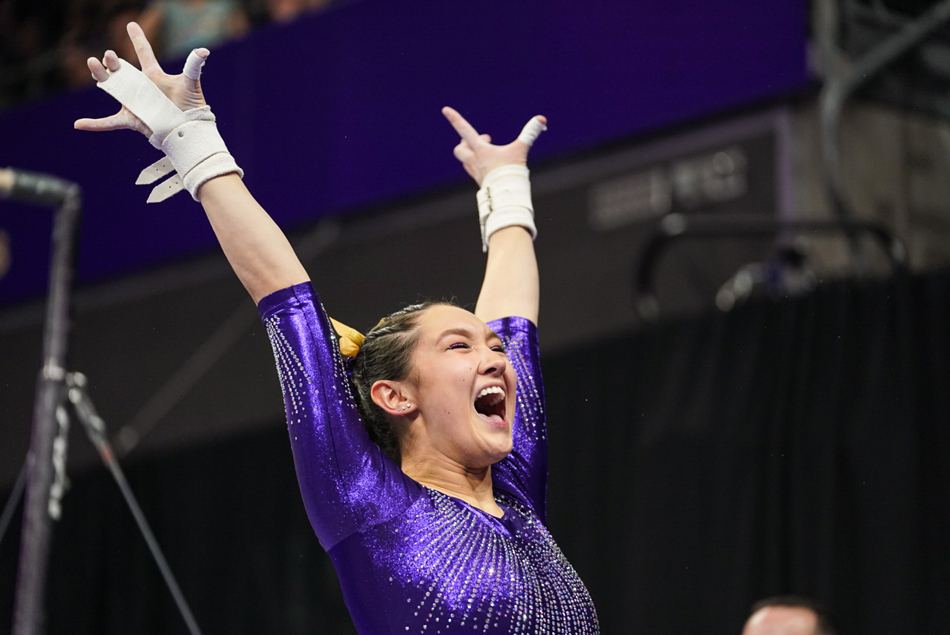
Gymnast Taylor Russon recently completed her Informatics degree, and is now pursuing a Master of Science in Information Management degree as well. She said that the Informatics program’s focus on project-based work and flexibility were helpful to balance her schedule.
“There were so many options within Informatics,” Russon said. “It really sets you up to go in any direction within the tech world.”
Sticking to a specific routine and going to bed early helps Russon stay on top of training and assignments. “I make sure that I’m getting everything done ahead of time, so that when I’m at practice I don’t have to stress about school,” she said.
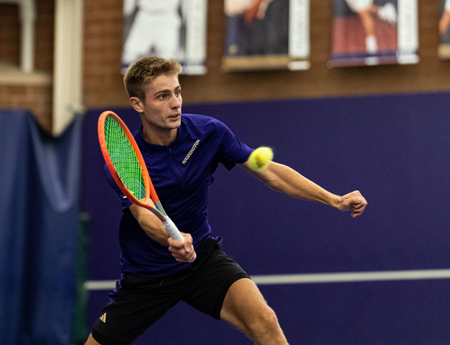
That focus pays off. Last spring Russon helped lead UW Gymnastics to one of their best floor scores in program history. She also completed her senior year as a Women’s Collegiate Gymnastics Association Scholastic All-American. On Jan. 10, Russon will compete when UW hosts a Quad Meet with Stanford, Boise State and UC Davis.
Tennis player Nedim Suko, Informatics ’25, spoke from Tunisia, where he spent last summer playing in the international Futures Tournament. To juggle sports and school, he prioritizes going to his professors’ office hours and being actively involved in group projects. Early in the academic quarter, he lets his instructors know about the dates on which he will need to miss class for away games.
“It’s important to me to build good relationships with the professors and teaching assistants,” Suko said.
Suko also emphasized the importance of academics. “Tennis is important, but school is still the first priority,” he said. He and his UW men’s tennis teammates have been recognized for their high-achieving academic records.
Having a supportive community of fellow athletes helps, he said.
“We’re really lucky at UW – our athlete community is really tight,” Suko said. “Everyone kind of knows each other, and it’s super nice, because people will come and support your matches, who play completely different sports.”
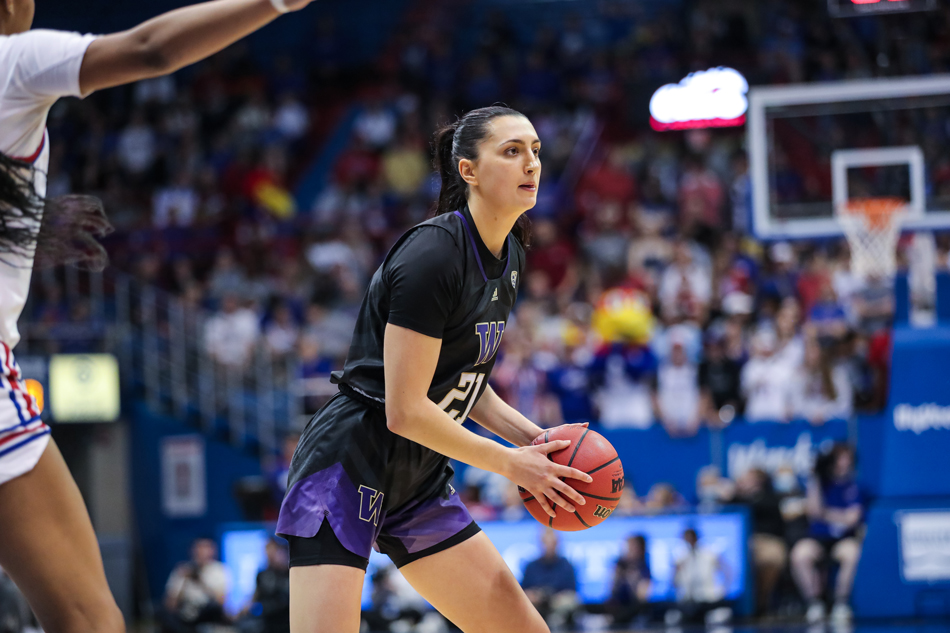
Basketball player Emma Grothaus, MSIM ’24, saw dual benefits in continuing her education with a graduate degree as well as additional time to play her sport.
“The goal is to be efficient with our time when we’re on the court,” Grothaus said. Team practices can be flexible around class time, but players make up weightlifting sessions on their own time.
Her competitive approach enhanced her academics; Grothaus and her Capstone team earned an IDEAS Award for their project optimizing equity-centered work environments. The project was sponsored by faculty member Sara Sanford and Sanford’s company, GEN.
“The iSchool is great, because the professors are really understanding and they were interested in what I was doing on the court. It was great to be supported by them and by my coaching staff,” Grothaus said.
Part of the club
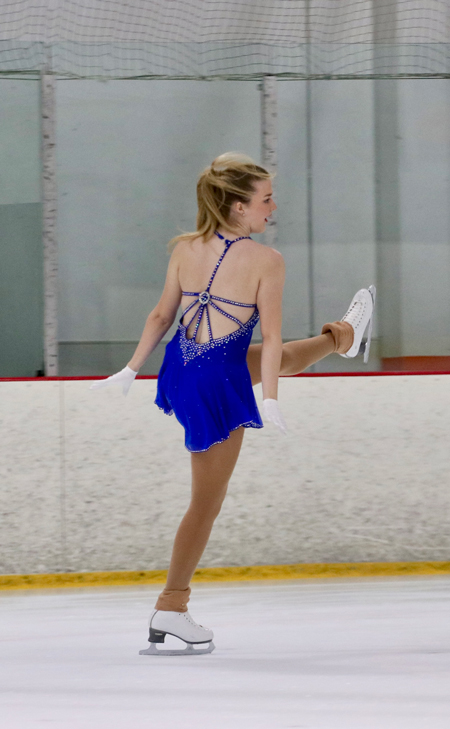
While many student-athletes play for UW Athletics teams, other iSchool students compete in Registered Student Organization (RSO)-based sports and activities. One of them, current Informatics student Lydia Sorbo, is part of the UW figure skating team, which travels to compete against universities nationwide.
Sorbo enjoys her team’s approach, welcoming everyone from Olympic hopefuls to skaters who are newer to the sport. “It’s really open and inclusive to all skill levels and experiences,” she said.
Taiga Hijikata, ’24, who played on the UW men’s club soccer team, said his sport was a good outlet for him, with evening practices that allowed him to prioritize his studies in Informatics and other on-campus involvement. Club sport players take a leadership role in managing their sports’ games, publicity and travels. Hijikata said he has learned skills that will help him as he pursues a career in data science, AI and project management.
Courses such as INFO 386 with Laura Schildkraut taught Hijikata the importance of building connections, and soccer made it possible for him to build a strong community at UW and beyond. “Wherever I go in the world, there are people who love soccer,” he said.
“I hope club sports can be more recognized,” he said. “I was able to play with really talented, athletic, ambitious soccer players at UW.”
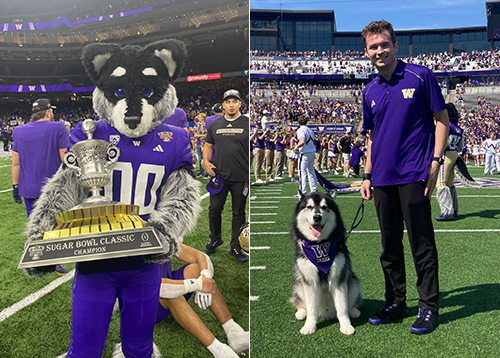
Some iSchool student-athletes have more than the usual uniform gear. Ryan Fournier, an Informatics minor who graduated last spring, worked as a Harry the Husky mascot as well as a Dubs wrangler for UW Athletics. The mascot role requires a variety of skills, including athleticism and creativity, and a level of dedication on par with other UW sports. Portraying Harry led to opportunities to help represent the university at the 2024 Sugar Bowl in New Orleans and the championship game in Houston.
“What you put into something is what you get out,” Fournier said. “Being Harry for so long, I put in so much work in the beginning, and it honestly paid off. I’ve had experiences I would never trade.”
Prioritizing mental health
Student-athletes deal with particular challenges and stressful situations that can put a strain on their mental health.
“It’s a hard topic, so intricate,” Grothaus said. “There are many different ways student-athletes can struggle with mental health, whether it’s being away from home, performance anxiety,” and other reasons.
Suko said he has seen how the day-to-day stress can weigh on athletes who are under pressure to perform in their sport as well as in their classes.
“There’s stress there. There’s anxiety,” he said. “And then on the weekends when you have games and stuff, not only are you thinking about getting homework assignments done, but you’ve got to basically put up results in your sport as well.”
Mental health resources for athletes have expanded in recent years at the UW and beyond. Sports psychologists are available to NCAA student-athletes, and time off is allowed for therapy, whether mental or physical.
Suko points to therapists as one of several helpful resources. “I feel like the UW in general has been doing a much better job of promoting that there is help for any mental health issues. There are a lot of resources that you can access and a lot of people you can talk to,” he said.
Athletes like Sorbo in club sports face challenges balancing the load as well, but do not have the same level of access. “It can be stressful trying to compete, and to complete all your assignments at the same time,” she said. “It would be nice to have directed resources regarding mental health for RSO sports.”
New horizons
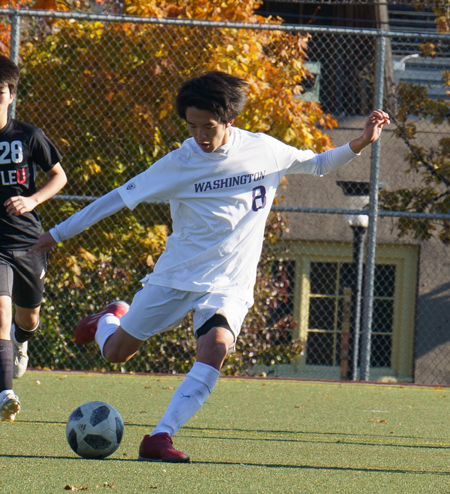
Student-athletes have to deal with new challenges this year with the move to the Big Ten athletic conference, a seismic shift for the UW. Continuing iSchool athletes are optimistic about the change.
“I’m so excited,” Russon said, noting that though she loved the Pac-12, the opportunity to compete against a wider variety of schools will be good for competition.
Grothaus said that for student-athletes, having less time at your home base can be hard. “How you travel is important, so I think more emphasis will be put on preparation, recovery and academics on the road,” she said.
Fournier said he was glad that he was able to finish his UW experience as “infinite Pac-12 champions.”
After their collegiate careers have ended, some athletes find ways to keep up with their sport. Hijikata joined the semi-professional soccer team Bellevue Athletic FC. His new team placed first in its league and recently competed in the U.S. Open Cup.
Some parlay their passion for athletics into a career. Fournier now works for the Seattle Storm and the Seattle Mariners. Grothaus has fielded job offers and noted that her experiences in athletics helped her to become better at networking.
Professional sports increasingly depend on analytics to inform game strategy, so there is a unique opportunity for Information School students and graduates to contribute both on and off the field.
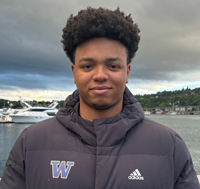
Recent Informatics graduate Alexander Evans combined his interest in data science with his passion for sports in his studies and in his work for UW Athletics. “Whatever I was doing, I wanted to merge my love of numbers, data and analyzing basketball, and combine them,” he said.
Evans’ work as a student analytics manager for the UW women’s basketball team included supporting the team’s goals in a variety of ways. Sometimes the coaches asked him to crunch numbers on an opposing team, film practices, and provide analysis on a player’s shooting style and positions based on the footage. Sometimes he was tapped to play against the team’s players in an imitation of an opponent’s style to help prepare, which he said was a fun experience.
He also created data visualizations for the team and coaching staff, using skills he had learned in his iSchool studies. Evans is now building on what he learned by pursuing his MSIM degree.
Their time in Husky sports may be fleeting, but the athletes said the friendships they make are one of the lasting and enjoyable benefits of their time suiting up in purple and gold.
“It’s a really uplifting environment,” Sorbo said of her time on the figure skating team, calling it “a huge part of my college experience.”
“It’s fun to have the competition, and all the friends and team bonding,” she said.
